Question 1: What should matter to me?
Students will:
Common Intellectual Experience (CIE)
- Develop habits of self-reflection about what matters to them
- Become active participants in a campus intellectual community
- Become better critical readers of texts from a wide range of disciplines, cultures and time periods
- Become more skilled participants in group discussions
- Become better writers
Question 2: How should we live together?
Students will:
Diversity and Inequality (D)
- Explicitly engage and reflect on the question How should we live together? with reference to themes of diversity, difference, and social and political equality and inequality
- Analyze the operation of privilege, merited and unmerited, that reflects the unequal distribution of power in the world, and they should reflect critically on the causes and effects of political and social equality and inequality in the light of racial, ethnic, class, gender, sexuality, disability status, religious and/or other differences
- Develop the habit of giving serious consideration to viewpoints very different from their own, even — or especially — when these may be troubling or unsettling
Global Interconnections (GN)
- Explicitly engage and reflect on the question How should we live together? with emphasis on how peoples of different cultures, societies, regions, and countries form and transmit the values, attitudes, beliefs, and behaviors that distinguish them.
- Develop familiarity with cultures whose origins and development lie outside the United States and Western Europe.
- Develop familiarity with global, non-Western perspectives
- Analyze the principles and patterns that shape societies and inform the behaviors of the individuals and groups who live in them, with reference both to observable phenomena as well as the underlying assumptions and shared beliefs that influence them
Obligations (O)
- Explicitly engage and reflect on the question How should we live together? with special consideration of our obligations to others
- Develop familiarity with ideas and claims, whether past or present, whether concrete or abstract, about what individuals or group entities should do in relation to some other or others
- Reflect critically and analytically on those ideas and claims
Question 3: How can we understand the world?
Students will:
Artistic/performative (A)
- Develop their ability to explain and apply creative practices as a way of understanding and examining their experiences or the world around them, including artistic or creative expression in whatever form they may take
- Identify the influence of context or cultural perspectives on their understanding of the world as interpreted through an artistic or performative approach
Deductive reasoning (R)
- Start from a premise or premises and use a logical process to reach a sound conclusion
- Develop their ability to demonstrate a complete solution with justification of all steps to reach that solution
- Consider how context and framing influence the approach they use in reaching conclusions
Humanistic inquiry (H)
- Explore human experience through attention to textual interpretation and by seeking to understand diverse perspectives
- Develop the ability to use interpretive and rhetorical tools to construct and evaluate arguments
- Identify influences of context and/or cultural perspectives on our understanding of the world
Quantitative reasoning (Q)
- Apply mathematical concepts to solve everyday problems
- Explain quantitative information presented in a variety of forms
- Demonstrate the ability to complete calculations, work with data, draw conclusions based on analysis, and explain their findings
- Consider how the context surrounding the problems influences the approach they use to develop a solution
Scientific inquiry/experimentation (S)
- Develop the ability to explain and apply evidence-based approaches to understanding natural phenomena
- Understand the roles of theory, observation, hypothesis development, prediction, and data collection and validation in the accumulation of scientific knowledge
- Participate in methods of inquiry and/or experimentation that include at least one of the following approaches: bench work, field work, observation of the natural world, utilization of scientific databases, and modeling of natural phenomena
- Seek to understand how the context of scientific developments influences their individual understanding of the universe
Social scientific inquiry (SS)
- Develop their ability to explain and apply an empirical approach to understanding relationships between social structures and human agency
- Identify the influence of cultural perspectives on our understanding of the world
Foreign language (L)
- Engage in communicative activities on common topics using a foreign language
- Learn how language syntax and terminology informs us about different cultures
- Develop their ability to recognize and value the distinctive characteristics of a foreign language
Linked Inquiry (LINQ)
- Explicitly apply multiple disciplinary perspectives and understandings of a theme, topic, problem, or idea
- Reflect on how interdisciplinary approaches to a problem can be useful in understanding the world
- Demonstrate how different methods of inquiry work together through study of a topic using multiple methods
Question 4: What will I do?
Students will:
Experiential Learning Project (XLP)
- Develop independent thinking skills, their awareness of self and others, and their capacity for reflection by adopting different perspectives and inquiring into their own beliefs
- Apply knowledge and skills learned in the classroom successfully and thoughtfully to an experience outside of the classroom
- Gain knowledge and skills that are applicable to future pursuits
- Demonstrate their ability to synthesize and disseminate their learning inside and outside of the classroom (e.g., internship essay, public presentation, research paper)
Core Capstone (CCAP)
- Reflect substantively, both individually and in groups, on Question 4 (“What will I do?”), while also reflecting on Questions 1, 2, and 3
- Draw explicit synthetic and/or constructive connections between their experiences in various courses, including those outside their major, and co-curricular activities, demonstrating transformations they have had over time and connecting college with something of meaning in their own lives such as personal, political, professional, artistic, intellectual goals
- Reflect on and demonstrate how and why their own thinking and ethical decision-making has changed during their time at Ursinus, particularly regarding the core questions
- Articulate guiding principles for future decision-making
